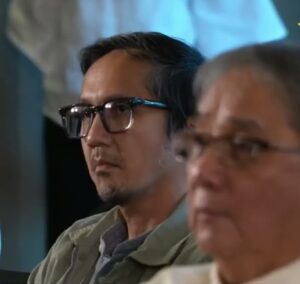MANILA, Philippines – In a decisive move targeting deeply entrenched issues of graft and overpricing within government infrastructure projects, President Ferdinand Marcos Jr. has issued a stringent directive to the Department of Public Works and Highways (DPWH) to dramatically slash the procurement costs of essential construction materials. The President has tasked DPWH Secretary Vince Dizon with achieving a price reduction of “as much as 50 percent,” a measure explicitly aimed at eliminating systemic corruption and realizing massive savings for the national budget.

💰 Direct Order Follows Internal Review
The directive, announced by the President just before his departure for the 47th Association of Southeast Asian Nations (ASEAN) Summit in Malaysia, stemmed from an alarming internal review conducted by the DPWH itself. This review confirmed longstanding suspicions regarding the inflated costs of materials used in publicly funded infrastructure.
“The DPWH reviewed the pricing of construction materials and found out that several items like asphalt, steel bars, cement were overpriced for as much as 50 percent,” President Marcos Jr. revealed in his departure speech at Villamor Air Base in Pasay City.
The magnitude of the overpricing—up to half of the total price—suggests either systemic collusion among suppliers and officials or profound inefficiencies in the procurement process. The President made it clear that this wasteful spending, funded by taxpayers, must immediately cease.
P30 Billion in Expected Savings for Critical Services
The primary motivation behind this aggressive cost-cutting measure is to reallocate misappropriated funds toward vital social services. President Marcos Jr. underscored the fiscal implications of his directive, projecting significant savings that could be channeled into sectors struggling for adequate resources.
“In order to ensure that the cost of the DPWH will reflect to the cost of the market, and to ensure that the people’s money is correctly spent, I have directed the DPWH Secretary to bring down the cost of materials by as much as 50 percent, which will result in savings in the capital outlay spending of at least $\text{P30}$ to $\text{P45}$ billion,” Marcos announced.
The immediate purpose of these projected savings is humanitarian and developmental: “This is money we can use for services such as health, education, and food that our people desperately need,” the President added. This linkage between infrastructure efficiency and social welfare places the anti-corruption drive squarely within the administration’s broader agenda for equitable national development.
The Context of Corruption: Simultaneous Investigations
President Marcos Jr.’s demand for price reduction is not an isolated policy move; it is directly intertwined with ongoing, high-profile investigations into alleged anomalies within government infrastructure projects. The DPWH, under Secretary Dizon, has recently intensified its efforts to prosecute those responsible for fraudulent projects.
Just last Thursday, the DPWH formally lodged criminal complaints before the Office of the Ombudsman against multiple contractors and agency officials. These charges stem from separate cases involving anomalous flood control projects in the provinces of La Union and Davao Occidental.
Secretary Dizon confirmed that the DPWH personnel and contracting firms were charged with malversation of public funds through falsification of public documents, marking a significant effort by the agency to hold its own people accountable.
Case Study 1: Substandard Projects in La Union
The gravity of the alleged corruption was illustrated by specific projects. On September 16, Secretary Dizon personally inspected two flood mitigation structures along the Bauang River Basin in La Union.
Project Details: Each structure was valued at $\text{P89.7}$ million.
Anomaly: Both projects, awarded to Silverwolves Construction Corp., had been fully paid by the government despite subsequent inspection finding them to be substandard and incomplete. The discovery highlights a grave failure in both project execution and governmental oversight.
Case Study 2: The ‘Ghost’ Project in Davao Occidental
An even more egregious case was uncovered in Davao Occidental, where Secretary Dizon described the flood control work as a “ghost” project.
Project Details: The project was valued at $\text{P96.5}$ million.
Anomaly: It was awarded to St. Timothy Construction Corp. (owned by Discaya) in January 2022. The term “ghost project” implies that the government paid for work that was either never started or existed only on paper, representing a total loss of taxpayer money.
A Dual Strategy: Prevention and Punishment

The President’s directive to lower material costs acts as a powerful preventative measure, shrinking the potential profit margins available for illicit activities like padding bills or inflating contracts. By mandating that procurement costs align with true market value, the administration aims to remove the financial incentive for corruption at the initial stage of the bidding process.
Simultaneously, the DPWH’s actions—filing charges against officials and contractors—demonstrate the punitive arm of the government, signaling that past misconduct will be rigorously investigated and prosecuted.
This coordinated, dual strategy—proactively reducing costs while aggressively pursuing legal action—represents a formidable attempt by the Marcos administration to instill transparency and fiscal discipline in the nation’s infrastructure spending, ensuring that the billions allocated for vital public works are genuinely spent for the benefit of the Filipino people.





